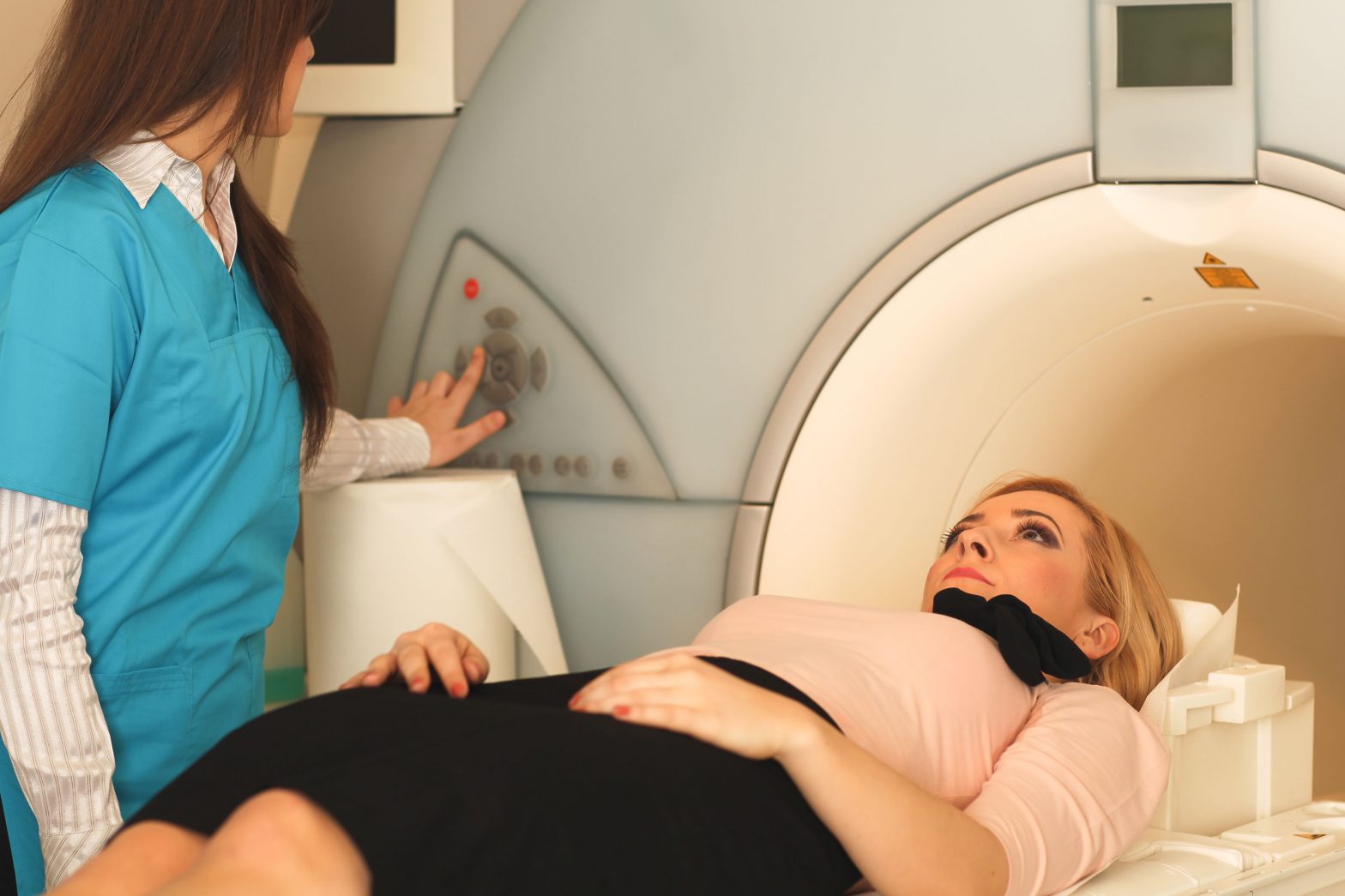Abdominal and pelvis MRI examination
Abdominal and pelvis MRI examination includes both abdominal and pelvic MRI, and at the same time organs that are not visible in case of a separate scan can be examined as well.
During the abdominal and pelvis MRI, detection of lesions around the abdominal visceral organs – liver, spleen, pancreas, abdominal lymph node regions – and around the internal genitals and bladder.
What kind of preparation is needed?
In all cases, consult your doctor before having an MRI scan. Do not eat for 6 hours before the examination. Due to the strong magnetic field, metal or a device containing metal (key, bank card, jewellery, mobile phone) must not be brought into the examination room.
If your body still has metal implanted before 2000, be sure to consult your doctor to see if the scan can be performed. Metals implanted after 2000 are generally safe and are not an obstacle to MRI examination.

Does the examination have any side effects?
There are no side effects of the MRI scan. In case of known allergies, the patient is not examined with contrast agent.
How is an abdominal and pelvis MRI scan performed?
The patient lies on their back during the examination. Staying still is important for evaluable images. The knocking machine noise during the examination can be reduced by using earplugs.
In which case can the test not be performed?
If a pacemaker or pre-2000 metal (screw, implant, tourniquet) has been implanted in your body, the test is unlikely to be performed.
When is the result expected?
The completed recording will be reviewed by the radiologist and the result will be available in our online system after 5 working days.
